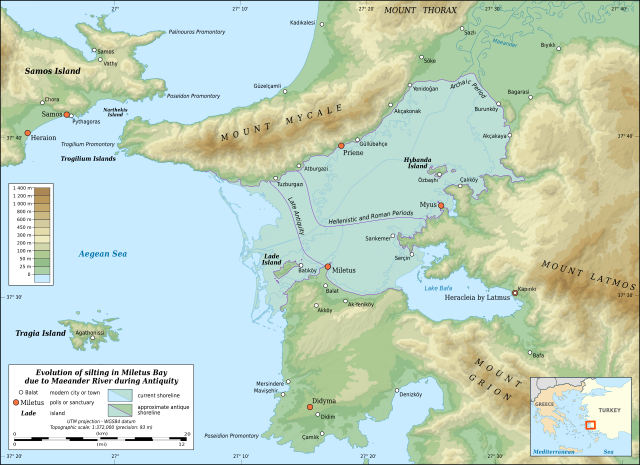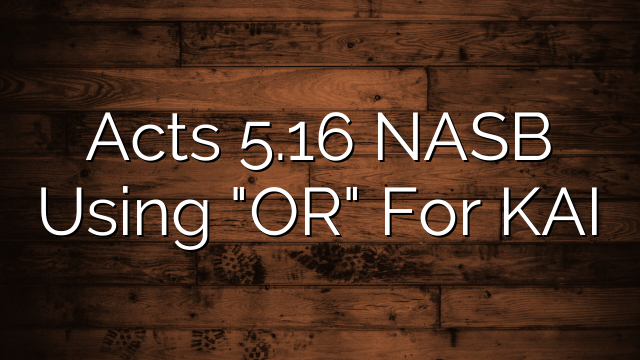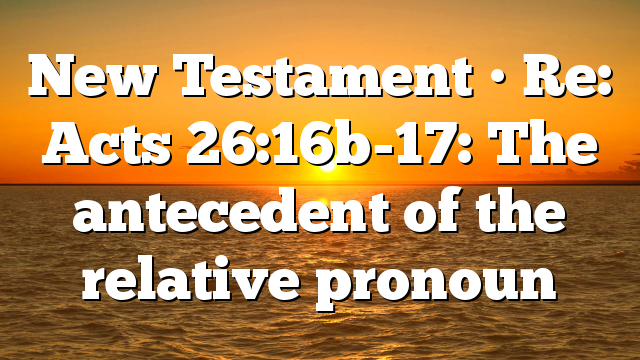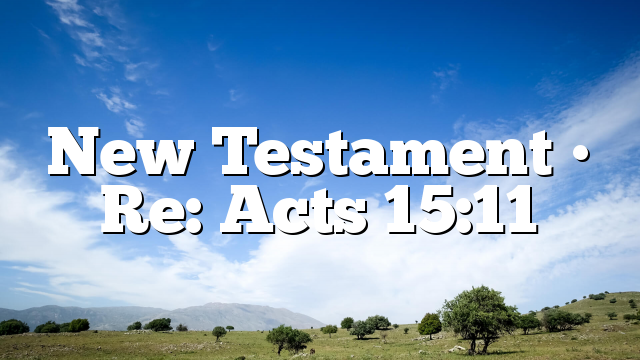I am questioning whether the verb παραβαλεῖν εἰς τόπον actually means come (sail) to the land as suggested by LSJ and apparently all English translations (The English word “touch” in this context means “stop or dock briefly at”).
It seems to me that it means sail along the land, but in a special technical sense when used of an open sea voyage with the preposition εἰς. That is to say that παραβαλεῖν εἰς τόπον (when used of sailing) is “to sail over open water till one sights land and then sail along parallel to the land without landing”.
[The word is used in the NT twice and only once in this sense.]
The verse it is used in is
Acts 20:15 (Byz2005) wrote:
τῇ δὲ ἑτέρᾳ παρεβάλομεν εἰς Σάμον· καὶ μείναντες ἐν Τρωγυλλίῳ
And on the next day we sailed across to Samos then along the coast and waited (for some time) on the Trogylium Promontory
LSJ gives the meaning in this sense as:
LSJ παραβάλλειν B.II wrote:
go by sea, cross over, “παρέβαλε νηυσὶ ἰθὺ Σκιάθου” Hdt.7.179, cf. Philipp. ap. D.12.16, Arist.Mir.836a29; of ships, “ναῦς Πελοποννησίων ἐς Ἰωνίαν π.” Th.3.32.
Now, the usual sense of παραβάλλειν is “to lie parallel to”, “run parallel to”, and in reference to boats it can mean “to bring a boat alongside”.
It seems to me that the meaning “to go by sea”, “to cross over” is a very general translation for a rather specific manoeuvre, specifically that one would sail across the open ocean in the direction (as best as it was possible to judge it) to find landfall and then to sail parallel to the coast in the intended direction to get to the destination.
In this case, leaving Chios, they sailed south across the open ocean till they caught sight of the coast of Samos, then they would turn to port (left) and sail along the coast till they could see Mount Mycale and then navigate from that down through the Straits of Samos till they reached a suitable spot on the Trogyllium Promontory (on the mainland of Asia Minor) to do whatever it is they did there. 
Aparently, from that understanding, the verb implies that they never put into Samos. The εἰς refers to the landfall that they expected to see (not “to land at”) at the end of the open sea and the παραβάλειν refers to the running parallel after sighting land.
I want to put it up for discussion because the standard reference work doesn’t explain it, and none of the English translations seem to have captured the sense of that, and usually when that is the case…
Statistics: Posted by Stephen Hughes — April 6th, 2014, 3:59 pm


















![New Testament • Re: Acts 13:22 [ανδρα] κατα την καρδιαν μου](https://probible.net/wp-content/uploads/2018/01/New-Testament--Re-Acts-1322--ανδρα-κατα-την-καρδιαν-μου.png)

